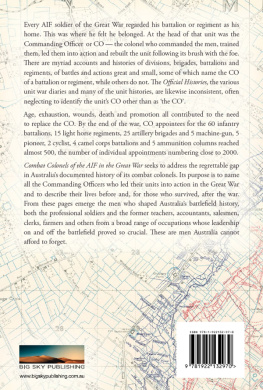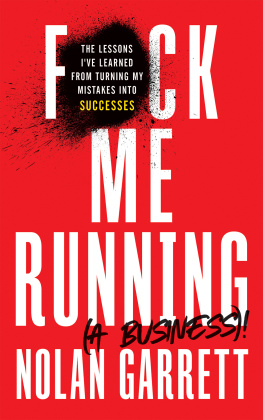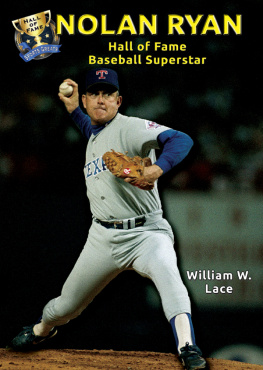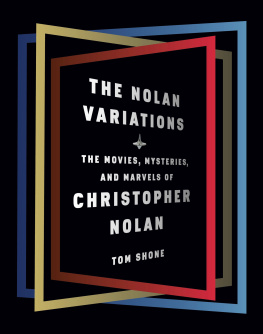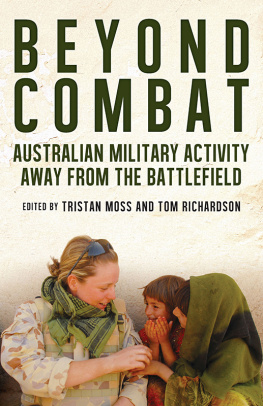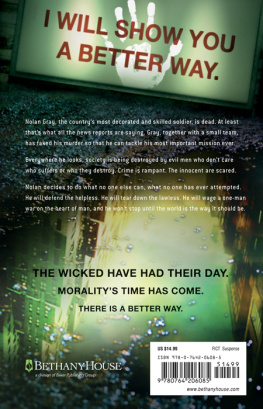Keith William Nolan - Into Cambodia
Here you can read online Keith William Nolan - Into Cambodia full text of the book (entire story) in english for free. Download pdf and epub, get meaning, cover and reviews about this ebook. year: 1990, publisher: Presidio Press, genre: Non-fiction. Description of the work, (preface) as well as reviews are available. Best literature library LitArk.com created for fans of good reading and offers a wide selection of genres:
Romance novel
Science fiction
Adventure
Detective
Science
History
Home and family
Prose
Art
Politics
Computer
Non-fiction
Religion
Business
Children
Humor
Choose a favorite category and find really read worthwhile books. Enjoy immersion in the world of imagination, feel the emotions of the characters or learn something new for yourself, make an fascinating discovery.

- Book:Into Cambodia
- Author:
- Publisher:Presidio Press
- Genre:
- Year:1990
- Rating:3 / 5
- Favourites:Add to favourites
- Your mark:
- 60
- 1
- 2
- 3
- 4
- 5
Into Cambodia: summary, description and annotation
We offer to read an annotation, description, summary or preface (depends on what the author of the book "Into Cambodia" wrote himself). If you haven't found the necessary information about the book — write in the comments, we will try to find it.
Into Cambodia — read online for free the complete book (whole text) full work
Below is the text of the book, divided by pages. System saving the place of the last page read, allows you to conveniently read the book "Into Cambodia" online for free, without having to search again every time where you left off. Put a bookmark, and you can go to the page where you finished reading at any time.
Font size:
Interval:
Bookmark:
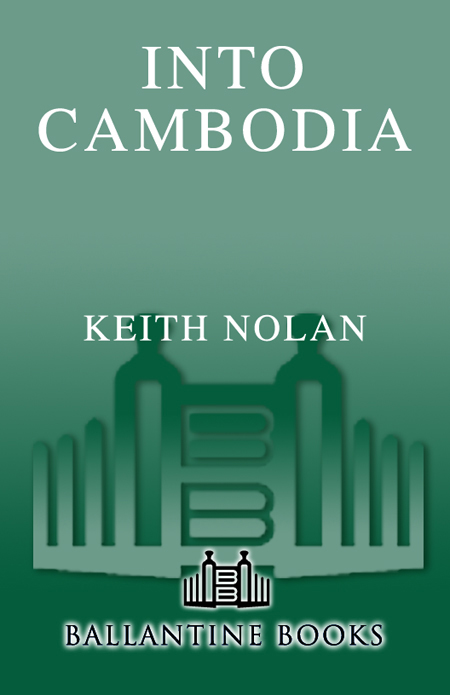
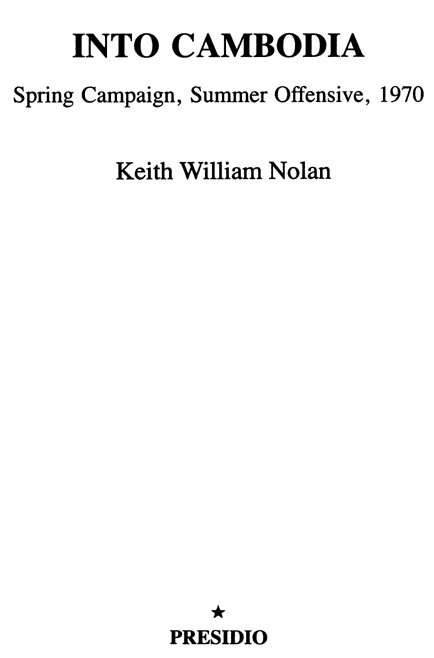
For Vila Mary Elisabet Anderson Nolan, April Denise Ball Reese,
Mary Celeste Anderson, Barbara Lynn Calhoun, and Holly Oeltjen
I finally did manage to put the war behind me, and there are two people who I must mention: my wife, who patiently brought me back home, and my friend, Tom. Tom, another member of the 1st Cav, lost the use of his legs due to injuries from combat. Tom never uttered a bitter word about the war and the country which sent him. Tom died last year due to complications from his wounds. Tom taught me to put the bitterness and hate aside. I often get caught up in the hassle of daily life, but if I can get a quiet moment and think of Tom and the quality of his life, I can again put things in proper perspective. The best of Tom Lipp will always live within me and his memory will live as long as I have the breath to tell of him. Tom was one of the best we had.
Robert T. Pullen
Sergeant; D Company, 5th Battalion,
7th Cavalry, 1st Cavalry Division;
Vietnam and Cambodia, 1969-70
I didn't have too bad a time over there, I don't guess. Was wounded four times, received two Purple Hearts. Twice I stayed in the field when I was wounded because they weren't severe enough to be sent to the rear and we were so short of manpower that they felt like they needed to keep me in the field. I was married just before I was inducted into the Army. I have one son by my first wife who was born while I was in Vietnam. Our marriage lasted about a month after I got out of the Army. It seems I was having problems dealing with Vietnam. We just couldn't work things out. It's kind of strange, I didn't talk about Vietnam so my second wife knew me for a long time before she realized I was a Vietnam vet. It's not that I was ashamed of being in Vietnam, but the majority of the people out there just don't understand and would call you woman and child killers and it wasn't worth the aggravation to try to explain to them because they didn't seem to want to understand. So for years I've more or less hid the fact that I was a Vietnam veteran, which made it even worse for me to deal with because I was proud of the fact that I had done my duty. I didn't go to Canada. Although I didn't understand why we were in Vietnam, it was my duty to serve and I was proud of that, but it's hard to be proud of something when the general public does not respect you or hold you in the same light they do other veterans. We need to break out of our shell and become publicly proud of the service that we did render, instead of just being proud within and trying to hide the fact without. My second son is by my second wife. My oldest is seventeen now and my youngest is twelve, and they are starting to show a little interest in my experiences in Vietnam so it makes it a little easier for me now to talk about it, but not a whole lot easier. Still, I think it ended up being a very good experience for me as far as how I live my life. I appreciate the value that I put on life now.
N. Dallas Tinsley
Specialist Fourth Class; C Company,
1st Battalion (Mechanized), 5th Infantry,
25th Infantry Division;
Vietnam and Cambodia, 1970
In Nam I felt as close to those guys as brothers. I was just one of those guys that was there and we weren't looking for medals or a pat on the back, just to do a job the way it had to be done. No real choice. They played the cards dealt to them the only way they couldsometimes with disregard for themselves to help and protect others, not just to attack an enemy. I love those guys. When the captain told me he was taking me out of the field, at first I really didn't want to leave my buddies. I was afraid for them as much as for myself. But when I was on that helicopter, back to base, I was real happy. I felt like a thousand pounds had just been taken off my body. I always had the feeling I wasn't going to leave Vietnam alive. For the first time I had the feeling I was going to make it. I sat off the edge of the chopper looking at the ground. I almost felt like the war was over. It was for me, if only this helicopter doesn't crash, I remember thinking. I had a lot of close calls walking point. A couple of times they should not have missed. I was never very religious, but I left Vietnam with a feeling I was not supposed to die. I feel the Lord had a purpose for my life and I don't know what it was or maybe is. Perhaps it was to have my two daughters. Maybe someday one of them will be president. If asked about Nam, I like to talk about my buddies. It makes me glow to think about or talk about them. At work if you say, Hey buddy, the response is, I have no buddies.
Dennis K. Walker
Sergeant; D Company, 6th Battalion,
31st Infantry, 3d Brigade (Separate),
9th Infantry Division;
Vietnam and Cambodia, 1969-70
PART ONE:
PART TWO:
PART THREE:
PART FOUR:
16 Snoul
PART FIVE:
PART SIX:
PART SEVEN:
PART EIGHT:
PART NINE:
38 Salty's Cache
PART TEN:
The focus of this manuscript is the Indochina War in the year 1970, most specifically the springtime campaigns of the U.S. Army in South Vietnam along the border with neutral (but communist-dominated) Cambodia, and the dramatic summertime offensive into Cambodia authorized by President Nixon. These were, of course, political times during which the policies of Vietnamization and Withdrawal had taken the headlines away from the battlefield. This manuscript is offered in honor of those soldiers whom history has generally bypassed. Whereas the news accounts of 1970 and the subsequent history books were dominated by the negotiations in Paris and the military withdrawals, Americans were still dying in the dust at places like Fort Defiance and Firebase Illingworth. Whereas the Cambodian Incursion is remembered for the furor over Nixon's speech and the four dead at Kent State, in Cambodian jungles more forgotten men were dying at Rock Island East, Ph Tnaot, Landing Zone Phillips, Salty's Cache, and along the banks of the Rach Cai Bac.
This manuscript will, hopefully, fill an historical and an emotional gap for those previously unrecognized men who lost comrades and parts of themselves on fields of fire. That I hope will serve the individual, but the subtheme of this manuscript should address the larger concern of the overall experience of the U.S. Army in Vietnam. A study of the blistering and costly campaigns along the border immediately prior to the offensive into Cambodia should acquaint one with the general tempo of the stagnated war of attrition that dominated the ground war in South Vietnam. Likewise, a study of the sweep into Cambodia reflects the larger, conventional style of operations that were periodically mounted during the war, as well as the political strings usually attached. The commentary on the decline in action and morale after Cambodia foreshadows the state of crisis that the U.S. Army was in when the cease-fire was signed.
This is my fourth book chronicling the campaigns of this misunderstood war, fought the wrong way but for noble goals, but I must make it clear that I am not a veteran. My fire is not fueled by personal experience. Rather it is fueled by a conservative, middle-class upbringing, which taught that one does not cast aside those who have bled for the republic. Nor does one judge the combat behavior and performance of soldiers according to political perceptions of the cause for which they serve. They are separate issues, and it was this deliberate blurring of the line that first sparked a commitment to this subject. When I originally began researching the warmy curiosity driven by my ignorance of the topic the library bookshelves were dominated by Lieutenant Calley and My Lai, a weak man and a shameful event that common sense told me did not speak for the average soldier. I could find, however, only rare rebuttal to the myth of My Lai typifying the infantryman's role in the war. At that time, scholars, journalists, and writers seemed mostly interested in spotlighting only the most bestial episodes of American involvement in Vietnam, to make political points regarding the folly or immorality of the war. They gave small thought to what such selective coverage did to the reputation of that majority of soldiers whose tour included no bloody ditch but only the hardships and fears and camaraderie that have always been the infantryman's companions. My aim is to give voice to those veterans whose experiences, having not included aberrations like My Lai, had been filtered out by the liberal media. During the years that my three books,
Font size:
Interval:
Bookmark:
Similar books «Into Cambodia»
Look at similar books to Into Cambodia. We have selected literature similar in name and meaning in the hope of providing readers with more options to find new, interesting, not yet read works.
Discussion, reviews of the book Into Cambodia and just readers' own opinions. Leave your comments, write what you think about the work, its meaning or the main characters. Specify what exactly you liked and what you didn't like, and why you think so.

